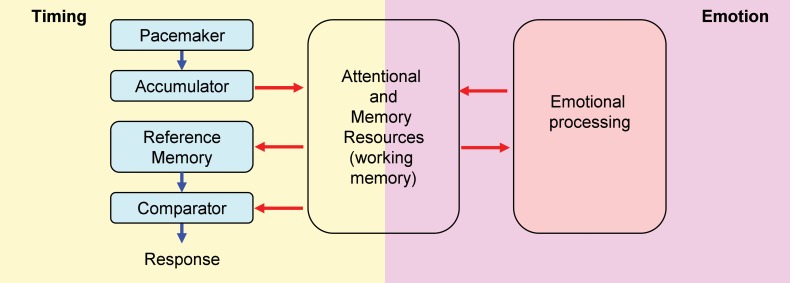Figure 1.
Relative Time-Sharing model. The Relative Time-Sharing model assumes that timing and emotional processing are concurrent processes which share working memory and attentional resources. Task-irrelevant emotional events are assumed to take away working memory and attentional resources from timing; without resources, timing is delayed. Since emotional events seem to have a sustained (long-lasting) effect on resource allocation, interval timing could be delayed considerably by emotional events (modified from Buhusi, 2012).

